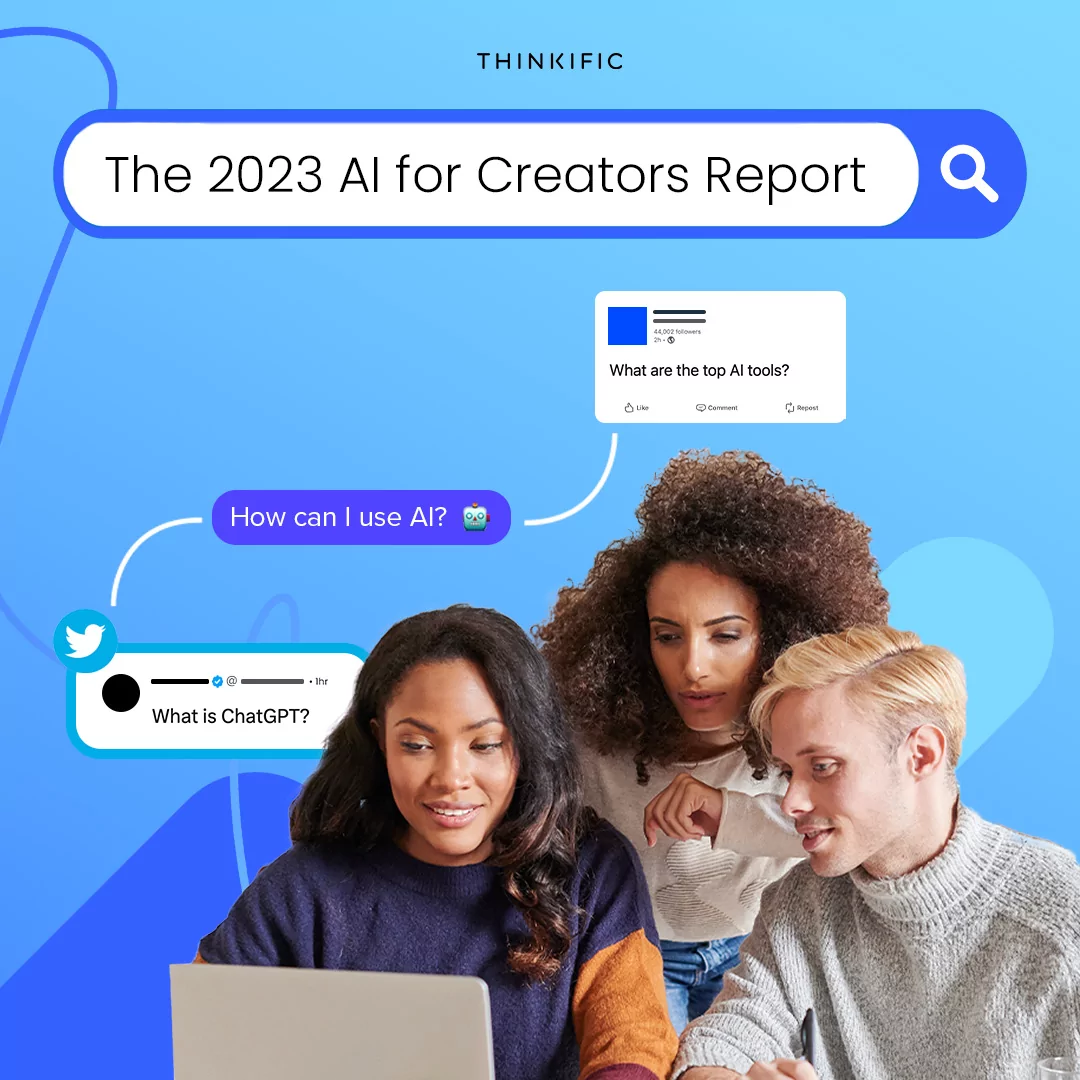You’ve probably heard, over and over, that the road to success runs through your content.
Content on your blog, in your emails, on social media, in your courses … content, content, content.
It has even become its own buzzword: content marketing.
As an expert, the thinking goes, your ability to drive sales of your courses is directly related to whether your content is good or not.
But did you know that your expertise may actually be harming your business and marketing efforts, more than it helps?
Let me explain.
Experts Beware: You’re Cursed
In 1999, a team of Stanford researchers conducted an experiment. Their goal was to figure out how successful experts are at predicting how long it will take novices to master a new skill.
I won’t bore you with the details, but here’s the gist:
Experts are terrible at predicting how long it will take a beginner to master even “simple” tasks. In fact, they found that the more expert you are, the more you will underestimate how long it will take.
The researchers named this phenomenon the Curse of Expertise. In a nutshell, the Curse means that as you gain expertise, you become so unconscious of your competence that you lose the ability to make accurate predictions about how long it will take to teach something to a non-expert.
Are you creating content? The Curse of Expertise might be affecting your marketing! Click To TweetThe Curse Extends Beyond The Obvious
This is an obvious problem when you’re creating courses; if you can’t predict how long it will take someone to master what you’re teaching, where does that leave you?
But perhaps more insidiously, the Curse of Expertise doesn’t just affect your ability to teach in your courses. It affects everything in your business — including your marketing.
Think about it.
No matter what type of content you share, your goal is always to educate your audience in some way. For example, you want them to learn:
- That you’re a trustworthy and credible expert.
- The benefits of what you have to offer.
- Why they should — or shouldn’t — buy from you.
- To be involved, participating and engaging in your material.
Prospective customers don’t come into this world knowing how we can help them. We meet them where they are at, and then nurture them until they are ready to buy.
Whether on social media, in blog posts, emails, or whatever other form our marketing might take, we’re taking our readers on a journey; every interaction is part of a bigger story we tell, in the hopes of moving the reader from where they are now, to where we (and they) want to be.
Whatever form our marketing might take, we’re taking our readers on a journey Click To TweetThe Problem of Hidden Learning
What’s interesting about the Stanford study is that the experts had no trouble outlining their knowledge. In fact, they broke the process into the same number of steps as beginners did. The Curse didn’t prevent them from being able to explain what to do, but it did keep them from intuiting how challenging each step would be.
This isn’t uncommon. When we think of breaking something down, we think about the actions to be taken.
Read this. Click here. Buy this. Do that.
What we don’t do is think about the learning journey that one has to take to be able to complete those actions.
Take, for example, the question of saving a voicemail — the exact test that the researchers in the study used.
On the surface, this is a simple multi-step process:
- Go into your voicemail
- Hit the key to retrieve the voicemail
- Listen to the message
- Save it
Educational theory, though, tells us that there is more to mastering this process than just doing the four steps. In order for a beginner to apply the procedure, they must first remember and comprehend each individual piece.
For example, they have to remember how the phone’s menus work and comprehend each prompt. Recalling that the ‘play’ command will play the message is one piece. Realizing that it makes extra menu options available — including the save option — is another. And so on, and so on, down the line.
It’s this “hidden learning” within each step that makes the Curse of Expertise so nefarious.
The hidden learning within each step is what makes the Curse of Expertise so nefarious Click To TweetThere’s More To Expertise Than a Beginning and an End
What’s more, this hidden learning is something that experts can’t seem to shake.
The Stanford research team tried (and tried, and tried!) to help their experts make better predictions. They told them to “think back” to when they were first learning. It didn’t help. They provided a list of common pitfalls and stumbling blocks. Still no improvement.
In the end, the researchers were completely unable to get accurate predictions from the experts. The simple truth is that we just can’t ignore what we already know, no matter how hard we try to put ourselves in beginners’ shoes.
Now, in fairness, beginners weren’t able to make accurate predictions, either. In fact, the only people who were accurate were those in the midst of the learning process.
And that’s the key.
It’s easy to fixate on where someone is right now, and where we want them to be in the future. But what the Curse of Expertise tells us is that it’s the middle of the journey where the magic happens.
There's more to your expertise than a beginning and end. The magic happens in the middle Click To TweetBreak The Curse Once And For All
Those who are in the midst of the learning process are best positioned to give us the data we need, because they have the right expertise level to do so. Not too little, not too much. Just enough to not be affected by the Curse.
When we apply that lesson to our marketing, we realize that there can be only one foolproof method for handling the Curse of Expertise. We need to stop predicting and start paying attention to what actually happens on the way from A to B.
For example:
- Every time you share an idea in a new way, watch for indications (comments, tweets, replies to emails, etc.) of the impact it’s having as it’s having it.
- Get real sales pages in front of prospects, and consider A/B testing the pieces of your sales funnel to track the effectiveness of your customer education process.
- Run pilots of your courses and programs, being open to your customers’ experience and without putting pressure on yourself to create the perfect curriculum in advance.
- Track engagement trends on your social media at a campaign level so that you’re looking at the big picture, and not just focusing on individual posts, pins, comments or Tweets.
When you base your decisions using data from the middle of the process, rather than just the start- or endpoints, you’ll be able to break the Curse of Expertise.
That’s the key to having your expertise benefit your marketing — and your business — rather than hindering it.
Breanne Dyck is founder and lead consultant at MNIB Consulting. She helps online training businesses to scale their impact, their team and their revenue by blending operations management, learning and product strategy, and business model development. Discover how to get more of your customers taking action with her free 4-step guide: From Understanding To Action.






